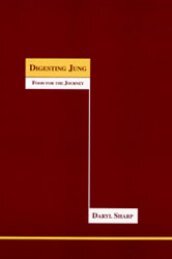Personality types: Jung's model of typology - Inner City Books
Personality types: Jung's model of typology - Inner City Books
Personality types: Jung's model of typology - Inner City Books
- No tags were found...
Create successful ePaper yourself
Turn your PDF publications into a flip-book with our unique Google optimized e-Paper software.
Extraversion and the Four Functions 39Although everyone is unavoidably affected by objectivedata, the extravert's thoughts, decisions and behavior patternsare actually determined, not simply influenced, by objectiveconditions rather than subjective views.The extravert naturally has personal views, but these aresubordinated to conditions as they are found in the outerworld. The inner life always takes second place to outer necessity.One's whole consciousness is oriented outward, becausethat is where the essential and decisive determinantscome from. Interest and attention are focused on objectiveevents, on things and on other people, usually those in theimmediate environment. Jung gives some examples <strong>of</strong> thistype:St. Augustine: "I would not believe the Gospel if the authority<strong>of</strong> the Catholic Church did not compel it." A dutiful daughter:"I could not allow myself to think anything that would be displeasingto my father." One man finds a piece <strong>of</strong> modem musicbeautiful because everybody else pretends it is beautiful.Another marries in order to please his parents but very muchagainst his own interests. There are people who contrive tomake themselves ridiculous in order to amuse others . . . .There are not a few who in everything they do or don't dohave but one motive in mind: what will others think <strong>of</strong>them? 41Prevailing moral standards dictate the extravert's personalstandpoint. If the mores change, the extravert adjusts hisviews and behavior patterns to match. His capacity and inclinationto adjust, to fit in with existing external conditions, isboth his strength and his limitation. His tendency is so outerdirectedthat in general he will not pay much attention even tohis own body—until it breaks down. The body itself is notsufficiently objective or "outside" to merit attention, hence the41 Ibid., par. 892.










